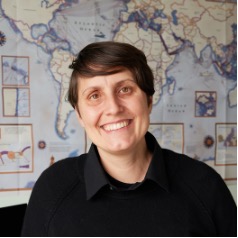
Strengthening Submarine Fibre Optic Cable Resilience in the Caribbean
- Overview
- Agenda
- Registration
- Speakers
- Presentations
- Documents
- Media
- Sponsors / Partners
- Remote
Participation - Event
Evaluation
Background:
The Caribbean region’s digital transformation is heavily reliant on robust and resilient telecommunications infrastructure, with submarine fibre optic cables forming the critical backbone. These cables provide essential connectivity for economic activity, social development and critical services. However, the region’s vulnerability to natural disasters, including hurricanes, earthquakes and submarine landslides, poses a significant threat to the stability and reliability of these vital networks.
Recognizing the global importance of submarine cable resilience, the International Telecommunication Union (ITU) and the International Cable Protection Committee (ICPC) have established an international advisory body on this issue. Recently, in February 2025, the Nigerian Government hosted a successful meeting in Abuja, bringing together global stakeholders to address these challenges.
Building upon this global momentum, the CTU and CANTO are convening a regional meeting of Caribbean stakeholders to specifically address the unique challenges and opportunities related to submarine fibre optic cable resilience within the Caribbean context.
Objectives:
This meeting aims to:
- Review the existing submarine fibre optic cable systems in the Caribbean:
- Assess the current state of infrastructure, including cable routes, landing stations and network capacity.
- Evaluate the age and technological capabilities of existing systems.
- Identify potential vulnerabilities and single points of failure.
- Analyze the resilience of current systems in light of the Caribbean’s unique challenges:
- Examine the impact of natural disasters (hurricanes, earthquakes, submarine landslides) on cable infrastructure.
- Assess the effectiveness of existing redundancy and restoration mechanisms.
- Evaluate the impact of climate change on cable infrastructure.
- Explore strategies for enhancing submarine cable resilience:
- Discuss best practices for cable route planning and design.
- Investigate the feasibility of implementing diverse routing and redundant systems.
- Examine the role of regional collaboration and information sharing.
- Review the recommendations and outcomes of the ITU and ICPC meeting in Abuja.
- Facilitate knowledge sharing and collaboration among Caribbean stakeholders:
- Foster dialogue between telecommunications operators, regulators, governments and regional organizations.
- Identify opportunities for joint initiatives and partnerships.
- Discuss the role of insurance and risk mitigation.
- Develop actionable recommendations for strengthening submarine cable resilience:
- Outline specific steps for improving infrastructure, policies and regulatory frameworks.
- Identify funding mechanisms and investment opportunities.
- Establish a roadmap for ongoing collaboration and monitoring.
- Support the push for digital economies:
- Evaluate the importance of reliable fibre infrastructure for the Caribbean digital transformation.
- Discuss how to future proof the region’s infrastructure to support digital services and growth.
Participants:
The meeting will bring together key stakeholders from the Caribbean region, including:
- Telecommunications operators
- National regulatory authorities
- Government representatives
- Regional organizations
- Submarine cable system providers
- International organizations (e.g., ITU, ICPC)
- Academic and research institutions
Expected Outcomes:
- A comprehensive understanding of the current state of submarine cable infrastructure in the Caribbean.
- Identification of key vulnerabilities and risks.
- Development of actionable recommendations for enhancing resilience.
- Establishment of a regional network for ongoing collaboration and information sharing.
- A report outlining the meetings conclusions and proposed actions.
Agenda:
The agenda will include presentations, panel discussions and interactive workshops covering the objectives outlined above.
Host Organizations:
- CTU: The Caribbean Telecommunications Union is an inter-governmental organization dedicated to promoting the development of the telecommunications sector in the Caribbean.
- CANTO: The Caribbean Association of National Telecommunications Organizations is a regional association of telecommunications operators and stakeholders.
Thursday 22nd May 2025
Provisional Agenda (Download)
| TIME | EVENT | SPEAKER |
| 10:00 | Welcome & Overview
|
Mr. Rodney Taylor
Secretary-General, CTU |
| 10:05 | Session 1: International Advisory Body on Submarine Cable Resilience: Setting the Context:
This session will delve into the crucial role of the International Advisory Body on Submarine Cable Resilience in bolstering the security and reliability of global subsea communication networks. Discussions will cover the body’s ongoing initiatives to mitigate risks from natural disasters and human activities, improve repair and deployment strategies, and foster greater international collaboration in protecting this vital infrastructure.
|
Presenters:
Dr. Tomas Lamanauskas Deputy Secretary-General ITU
Mr. Kent Bressie Partner and Head of International Practice at HWG LLP |
| 10:30 | Session 2: State of Play: Submarine Cables and Data Centres in the Caribbean:
This session will provide a concise overview of the current landscape of submarine cable networks and data center facilities across the Caribbean region. Attendees will gain insights into recent developments, key players, and the interconnectedness of this vital digital infrastructure. |
Moderator:
Mr. Giovanni King Chief Executive Officer Blue NAP Americas; and Chairman, Caribbean Datacenter Association (CDA) Panellists: Mr. Gonzalo Luis Jimenez Villamor Senior Consultant – Consulting & Business Operations – EIT – Deloitte Professor Nicole Starosielski Co-Principal Investigator Professor, University of California – Berkeley |
| 11:15 | Session 3: Open Discussion
|
Moderator: Mr. Carmine Sorrentino
VP, Chief Commercial & Operating Officer – Liberty Networks/CANTO |
| 11:45 | Session 4: Actionable Recommendations & Next Steps. Session Description: Concluding the technical discussions, this session will outline concrete steps to strengthen infrastructure, policies and investment frameworks. | |
| Topics:
· Infrastructure & Policy Improvements · Funding Mechanisms & Investment Opportunities · Roadmap for Ongoing Collaboration |
Moderator: Mr. Nigel Cassimire, Deputy Secretary-General, CTU | |
| 11:55 | Wrap up and closing remarks
· Summary of key takeaways |
Mr. Rodney Taylor, CTU |
| 12:00 | End of Webinar | |
Day 1 | |
|---|---|
| Nigel Cassimire, Deputy Secretary-General, CTU | Strengthening Submarine Fibre Optic Cable Resilience in the Caribbean |
| Tomas Lamanauskas | International Advisory Body on Submarine Cable Resilience |
 Deputy Secretary-General Tomas Lamanauskas Tomas Lamanauskas is Deputy Secretary-General of the International Telecommunication Union, elected at the ITU Plenipotentiary Conference of 2022, and taking up duties as of January 2023. His 25 years of experience spans across sectors of telecoms and digital policy, regulation and strategy, stemming from executive level positions in agencies, companies, and organizations across Europe, the Middle East, the Caribbean and the Pacific region. As Deputy Secretary-General of ITU, Tomas focuses on the financial sustainability and operational excellence of the organization. He also works to raise the digital industry’s ambition in fighting the climate crisis through the Green Digital Action initiative and promotes investments into the digital infrastructure as well as digital resilience through the Digital Infrastructure Investment Initiative and other efforts. Additionally, Tomas contributes to the global efforts to harness the opportunities and mitigate challenges of new technologies, in particular Artificial Intelligence, including through his role as a co-chair of the United Nations Inter-Agency Working Group on AI. He is also playing a key role in ensuring ITU’s support to other UN-wide development and governance efforts, including through the World Summit of the Information Society process and membership at the Operational Steering Committee of the UN Joint SDG Fund. Tomas holds Master’s Degrees in Public Administration (Harvard), Leadership and Strategy (London Business School), Telecommunications Regulation and Policy (The University of the West Indies) and Law (Vilnius University). |
 Chief Executive Officer of Blue Nap Americas (BNA) Giovanni King Giovanni holds a bachelor’s degree in electrical engineering from Fonty’s University in the Netherlands and a master’s degree in Telecommunications Regulation and Policy from the University of the West Indies, St. Augustine, Trinidad and Tobago. He has over two decades of experience in the electronic communications industry, primarily serving as an executive with regulatory authorities for electronic communications and postal services in the Dutch Caribbean. Giovanni is the Chief Executive Officer of Blue Nap Americas (BNA) and the chairman of the Caribbean Datacenter Association (CDA). |
 Professor of Film Nicole Starosielski Nicole Starosielski, Professor of Film and Media at the University of California-Berkeley, conducts research on global internet infrastructure, with a focus on the subsea cables that carry almost 100% of transoceanic internet traffic. Starosielski is author or co-editor of over thirty articles and five books on media, infrastructure, and environments, including: The Undersea Network (2015). Starosielski’s most recent project, Sustainable Subsea Networks (https://www.sustainablesubseanetworks.com/), is working to enhance the sustainability of subsea cable infrastructures. The project has developed a catalog of best practices for sustainability in the subsea cable and a carbon footprint of a subsea cable. Starosielski is also a co-convenor of the SubOptic Association’s Global Citizen Working Group and a Principal Investigator on a SubOptic project to enhance the strategic resilience of subsea cables in the Caribbean. |

